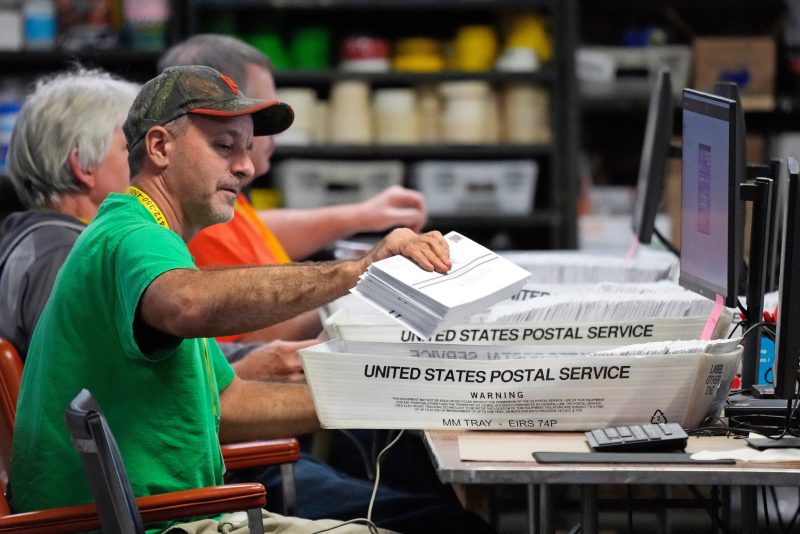
Clash over Military and Overseas Voting Rights Sparks Controversy among Republicans
Body:
The Republican Party is currently facing significant backlash for lawsuits aiming to constrict overseas and military voting rights, emphasizing the deep rift that exists on the valid interpretation of voting rights and election security in the United States.
The legal challenges filed primarily by Republican officials and candidates inflate concerns regarding voter fraud, often honing in on the extended use of mail-in ballots. Although voter fraud occurs on an extremely rare scale, it becomes a persistent talking point, fueled arguably by misinformation, initiating a strain that invariably manifests into court cases seeking to limit the participation of overseas and military voters.
The political backlash resulting from these lawsuits is multilayered. The implications arising from challenging the voting rights of a key demographic, which consists of men and women serving the United States in the military, are politically sensitive and somewhat controversial.
The military voting block has historically been perceived as favoring the Republican Party. Therefore, it seems counterintuitive for the same party to potentially disenfranchise their voters with these lawsuits. The move has not only provoked acute criticism from the affected voters but also left many political pundits perplexed.
Domestic and international advocacy groups see these lawsuits as an attempt to curtail a fundamental democratic right: the right to vote. They argue that voting should not be made unnecessarily complicated or inaccessible for citizens who are stationed abroad, whether they are part of the military personnel or are working in civilian capacity.
Proponents of these lawsuits argue that they intend to preserve the integrity of the election process, claiming that extended routines for collecting and counting overseas and early voting ballots open the door to potential fraud. These claims are, however, often met with skepticism as widespread voter fraud has been consistently debunked by academic researchers and election authorities alike, who verify the transparency and security of voting procedures.
The rhetoric around these lawsuits also serves to deepen existing political divides. It fuels partisanship by magnifying negligible instances of voting irregularities into perceived systemic issues, which can ultimately damage public faith in the electoral system.
Moreover, these legal challenges present distinct diplomatic consequences. By discouraging overseas voting through legal means, it sends a discouraging message to U.S. citizens living or serving abroad, and also can create tension with host nations.
In the spectrum of legal disputes around voting rights, those that target overseas and military ballots are particularly contentious, given the stature of the voters affected. Critics argue that instead of reinforcing the electoral framework, these litigations undermine the democratic process, diminish public trust, and potentially suppress the votes of American citizens dutifully serving their country overseas.
The response to these lawsuits reinforces the importance of a robust, accessible, and secure voting system that caters to all American citizens, regardless of their location. Disturbing this balance has resulted in severe backlash on both political fronts and has called into question the motives and outcomes of these interventionist policies.
